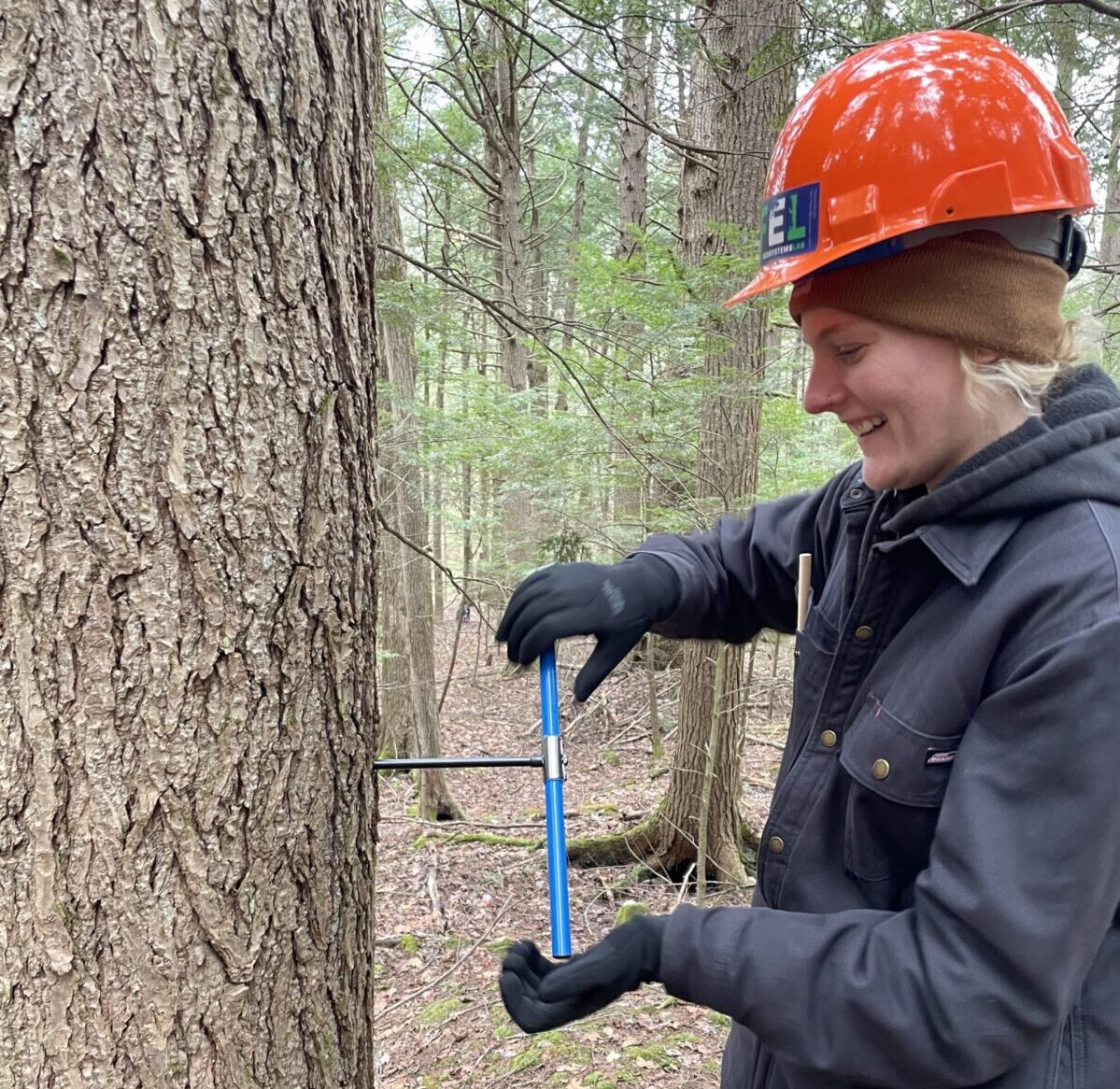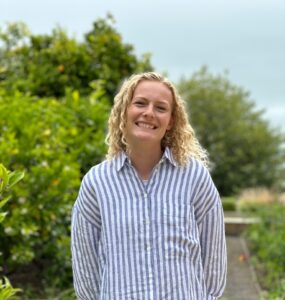From Kitchen Counter to Campus Kitchens: My Journey to Sustainable Food Service
- by Hannah Wylie

Hannah coring* a pine tree in the Colby Arboretum (Waterville, ME) as part of Colby’s Forest Ecosystems Lab.
From a young age, food was my source of joy and creativity. My grandfather used to hoist me up onto the kitchen counter so I could gather the ingredients for dinner –— the kitchen was literally my playground. As I got older, that fascination with food only grew. What was once a childhood pastime evolved into an obsession. I devoured cookbooks, immersed myself in documentaries, and cooked meal after meal for anyone willing to eat my food.
If it was food-related, I was all in. I would eagerly gather ingredients and experiment with recipes, usually with my favorite music playing in the background. Through cooking, I discovered that food has a unique power to foster connections. Sharing meals and recipes helps build relationships and create lasting bonds, a lesson I learned early on and one that continues to inspire my work today.
Connecting the Dots Between Food and Environment
Joining my high school’s environmental club was a transformative experience that influenced my perspective on sustainability. Our work included launching a composting program, where we sorted through food waste to remove non-compostable materials, and conducting a year-long research project on food insecurity in our community. It was the first time I really made those connections between environmental issues and food systems. I was perplexed by the stark contrast between the immense amount of food waste and the widespread food insecurity that so many people faced.

Hannah during the Fellows training in California this summer
I loved experiencing these various facets of environmental science, from growing lettuce hydroponically to analyzing soil layers in a dug-out pit in the woods. This work opened my eyes to the intricate connections between policy, research, business, health, and education (and more!) within the environmental field and led me to a degree in Environmental Science at Colby College in Waterville, Maine.
At Colby, choosing to major in Environmental Science allowed me to explore courses like Environmental Ethics, Marine Fisheries Management, Human Health and Pollution, Forest Ecosystems, and more. These studies underscored how deeply interconnected environmental science is with community work and food systems. My summer experiences further enriched this understanding: I worked as a camp counselor and environmental educator, leading canoeing adventures, nature walks, and storytelling sessions in the garden. Additionally, my role with the Narrow River Preservation Association in Narragansett, RI, provided insights into local conservation efforts. These experiences reinforced the links between environmental science, sustainability, and community engagement.
Going Deeper with Those Connections
My academic exploration of agroforestry, animal liberation, and environmental justice (among others) deepened my understanding of food systems and their impact on sustainability. A key moment in my journey came the fall of my senior year, when I was weighing career options like conservation, public health, non-profit work, and environmental education. During this time, a former Bon Appétit Fellow and Colby alumnus presented at Colby, which introduced me to the Fellowship. Hearing about Bon Appétit’s history and their commitment to sustainability was exciting and the Fellowship sounded like something I’d truly enjoy doing every day.
I’m thrilled about the opportunity to visit campuses, connect with Bon Appétit teams, and engage with students throughout my Fellowship. This role combines my love for food with my passion for sustainability and the environment, offering a unique chance to make meaningful connections within our food system.
Already, I’ve gained invaluable insights into Bon Appétit and what it looks like to deliver food service for a sustainable future. I’m eager to build on this foundation, collaborate with like-minded individuals, and enjoy some delicious food!
* Tree coring is a method for extracting a pencil-sized core from a tree to study its structure and growth rings.